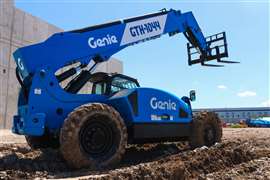Read this article in Français Deutsch Italiano Português Español
UK government criticized for ‘throwing money’ at modern methods of construction
26 January 2024
 A crane moves a prefabricated module into place during the construction of a high-rise building. Photo: Adobe Stock
A crane moves a prefabricated module into place during the construction of a high-rise building. Photo: Adobe Stock
The UK government’s attempts to boost housing construction by ‘throwing money’ at modern methods of construction (MMC) hasn’t worked.
That’s according to the findings of a House of Lords inquiry, which has criticized the government’s approach.
The Built Environment Committee has conducted an inquiry into the future of MMC in housing and published a letter to Housing Secretary Michael Gove today (26 January).
It said the government’s approach was in “disarray”, with millions of pounds of public money invested but “not backed by a coherent strategy and a set of measurable objectives”.
Some of the modular MMC companies that the government backed have failed financially.
But the Committee claimed that MMC could still play an important role in housebuilding “with the right approach”.
It accused the government of failing to understand the “real barriers” to MMC adoption such as risk aversion on the part of warranty providers and insurance companies, and insufficient clarity for Building Regulations.
Other findings and conclusions include:
- The committee heard contradictory evidence about whether MMC homes were more or less expensive to construct than traditionally built homes.
- The requirement to use MMC through the Affordable Homes Programme (AHP) incentivised some housing associations to use MMC in their projects, but not enough to provide strong pipelines for Category 1 MMC businesses.
- Measuring the government’s progress is difficult owing to a lack of data on MMC usage.
- The government’s MMC Taskforce, which was allocated £10m and was expected to take forward work on data and standards, has never met.
- Higher energy efficiency requirements could incentivise greater usage of MMC.
- The time it can take to obtain warranties and the reticence of insurance providers to accept compliance with building regulations has detrimental impact on the delivery of MMC homes.
- The government should take a greater interest in overseas examples of success with modular construction.
Lord Moylan, chair of the Built Environment Committee, said, “Moderns methods of construction are successfully used to construct homes abroad and build high-rise and non-residential buildings in the UK, but this success has thus far eluded the building of MMC homes in meaningful numbers.
“In the context of an ageing skilled workforce and the need for greater building sustainability, MMC has shown some promise. We heard evidence that the Government couldn’t achieve its housebuilding targets without a sizeable contribution from the MMC sector.
“Our inquiry found that the government has not set out clear objectives for the funding it provided the MMC sector. Homes England has not given any clear metrics as to how success is to be measured and over what timescale.
“The government needs to change tack. Simply throwing money at the sector hasn’t worked. If it wants to encourage MMC it must acquire a much deeper understanding of how it works, develop a clear strategy, and demonstrate leadership.”
STAY CONNECTED


Receive the information you need when you need it through our world-leading magazines, newsletters and daily briefings.
CONNECT WITH THE TEAM









